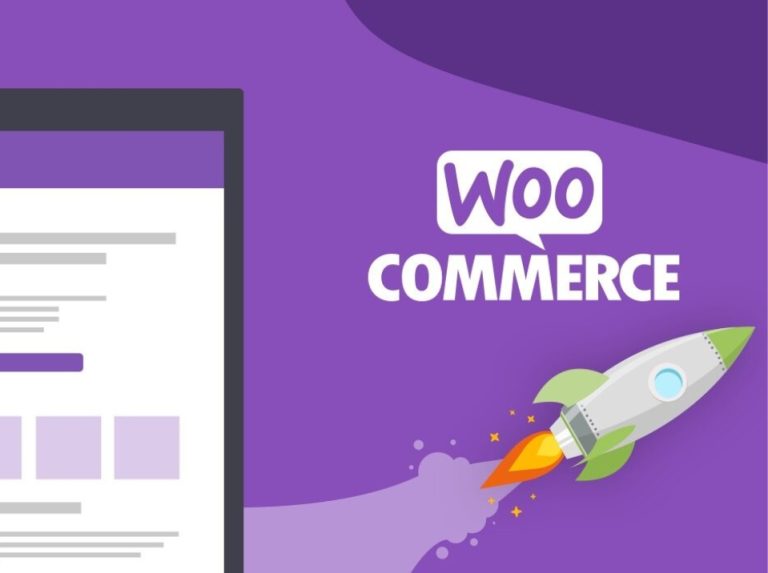WordPress WooCommerce, the most Powerful eCommerce Functionality for eCommerce
As the volume of business done online continues to climb rapidly, having an e-commerce website is crucial to more and more merchants. But not just any e-commerce functionality will do. To be competitive, you need to have a site that makes buying easy and creates a positive user experience. For a huge (and growing) number of websites (3.9 million by one estimate), that means WooCommerce.
WooCommerce is a free plugin for the WordPress website content management system. Easy to use and highly customizable, the tool enables you to set up a new online store in a matter of minutes, with secure payments, configurable shipping options, and more. There are also WooCommerce extensions available from what’s called the WooCommerce Marketplace.
Plus, developers love WooCommerce because it’s scalable (meaning it can grow with your business) and it can be integrated easily with other tools and platforms you use to support your e-commerce store.
WordPress WooCommerce Numbers
To understand WooCommerce’s place among other similar products, it’s helpful to look at the numbers—and they’re impressive!
- 22% of the top 1 million websites use WooCommerce
- 94% of all WordPress websites use WooCommerce instead of another plugin
- 26% of online stores use WooCommerce, followed by Shopify (21%) and Magento (9%)
WordPress WooCommerce has a remarkable share of the market!
Why WordPress WooCommerce? 8 Reasons.
The numbers show that WooCommerce is a leader, but why? Why do so many businesses choose this plugin (over the many others on the market) for their e-commerce?
Here’s 8 Primary Reasons for using WordPress WooCommerce:
- Great price (it’s free!)—though like with any tool, there may be costs associated with having someone set it up for you
- Modular nature that lets you choose the functionality you need
- Part of the popular WordPress platform and very SEO-friendly
- Involved and innovative developer community with members that support one another
- Works with PayPal, Stripe, and most payment processors
- Robust and feature-rich product
- Plugins can be added as needed
- Licensed plugins are cost-effective
For these reasons and others, WooCommerce works well for a variety of product types, including simple products (a book you wrote and are selling, for example), variable products (items for which different sizes, colors, etc. are available), virtual products (i.e., things that aren’t physical items), and downloadable products (like an e-book).
WordPress WooCommerce Coupons Functionality
Another powerful feature in WooCommerce is the ability to offer coupons. In fact, its functionality exceeds that of many other systems, including some that are quite expensive. For businesses that use coupons as part of their marketing strategy, WooCommerce is a great choice.
Add-on Plugins in WordPress WooCommerce
Other WooCommerce add-ons that are popular with WordPress businesses include those that support:
- Memberships and subscriptions
- Classes and online courses
- Affiliates
- Bundled products
- Assessments
What Are Membership Websites?
A membership website enables you to publish gated content (i.e., content you get by providing something in return) and charge a recurring fee so that your loyal readers and fans can support your work. This type of site is commonly used by writers, bloggers, journalists, podcasters, video creators, and newsletter authors.
Functionality in WooCommerce makes it easy to create a membership website. For example, you can:
- Create and offer multiple tiers of paid or unpaid memberships
- Enable customers to sign up, pay for, and extend their memberships (or choose to only allow access to tiers yourself)
- Offer perks like trial periods, complimentary memberships, and members-only discounts
- Fully integrate with WooCommerce Subscriptions to allow automatic membership payments and renewals
WordPress WooCommerce and PCI Compliance
Businesses that handle client credit card data (referred to as cardholder data or CHD) are required to be what’s called “PCI compliant.” PCI (payment card industry) compliance means that you adhere to specific data security standards (DSS) agreed to by the four major credit card companies. Often, you’ll see the term “PCI-DSS” referring to the handling of credit card data and 12 requirements companies must follow.
WooCommerce isn’t inherently PCI compliant. But you can become PCI compliant while using WooCommerce. WooCommerce never stores CHD, which is very important, and the system can help secure the processing and transmission of CHD by enforcing TLS (transport layer security) encryption in order to access the site.
WooCommerce also uses the WordPress login system, which has role-based authentication. That means you can give users only the amount of access they need to do their job. And, you can use secure plugins with WooCommerce.
Ultimately, WooCommerce has many features that make it easier for your company to have a PCI-compliant website.
Are You Ready for WordPress WooCommerce?
If you’re planning to launch an e-commerce website or add e-commerce features to an existing site, we’d love to speak to you to figure out if WordPress WooCommerce is right for you. We also support Shopify and Magento platforms and can help you determine which e-commerce platform is the best route for you. Please schedule a complimentary discovery session with our AZENCE Solution Architect, Tricia.





